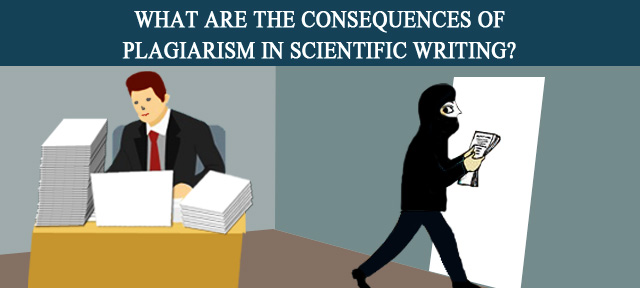While it is well understood that plagiarism is a ‘crime’ in the world of academic writing, it still is one of the most prevalent malpractices in this field. This is mostly because many maleficent authors try to get away by plagiarizing research paper writing in the hope that their foul act will not be detected in the midst of thousands of academic publications taking place.

Indeed, detecting plagiarism is a challenge, and is both time and resource-intensive. However, with rising awareness of the malice, there are concerted efforts in academia by all stakeholders in developing tools to detect plagiarism. Digital technology has today allowed better screening of plagiarism and most reputed journals follow rigorous processes to detect the same. However, the strongest deterrent for plagiarism is the consequences of plagiarizing. Today, severe penalties have been institutionalized against perpetrators of plagiarism, and ‘name and shame’ is one of the most prominent and effective tools being used to punish the violators.
Here are some major consequences of plagiarism in the academic world today.
Impact on studentship: The fight against plagiarism starts early. Students are made aware of plagiarism and are monitored for the same even at the graduation or post-graduation level. Most reputed educational institutions have strict policies against plagiarism. Students who found guilty of plagiarism even in their internal assignments and submissions face strict actions, ranging from failure in assignment or even the course, suspension for a year, or even deregistration. While most academic institutions have provisions for leniency for first-time offenders and unintentional mistakes, most have escalated provisions for repeat offenders.
Professional implications: The academic standing of professional academicians is severely impacted by even allegations of plagiarism. Professional academicians going for journal publication are expected to be well aware of the ills of plagiarism. Those found to indulge in it despite this knowledge are thus heavily penalized. This ranges from retraction of publication with public notice for the same, debarring by journals, and even ethics committees in institutions conduct internal inquiries if any faculty or staff is accused of plagiarism.
Legal consequences: Plagiarism comes under copyright laws that are present in every country. Today, intellectual property rights (IPR) are one of the strongest provisions in most countries and academic contents figure highly in such provisions. The aggrieved parties can initiate legal proceedings against the perpetrators. A formal legal suit against an author itself can trigger action from the institution in which they are employed leading to both legal and professional implications.
Monetary implications: Associated with the IPR provisions in monetary penalties for plagiarism. Violation of copyright can lead to hefty monetary penalties for individual authors. Given that such expenses are not covered by institutions or any other agency, the brunt is to be borne solely by the author out of their own pockets and it can often be a considerable sum.
As stronger actions are initiated against plagiarism both detection and penalties are expected to be stricter and harsher.

